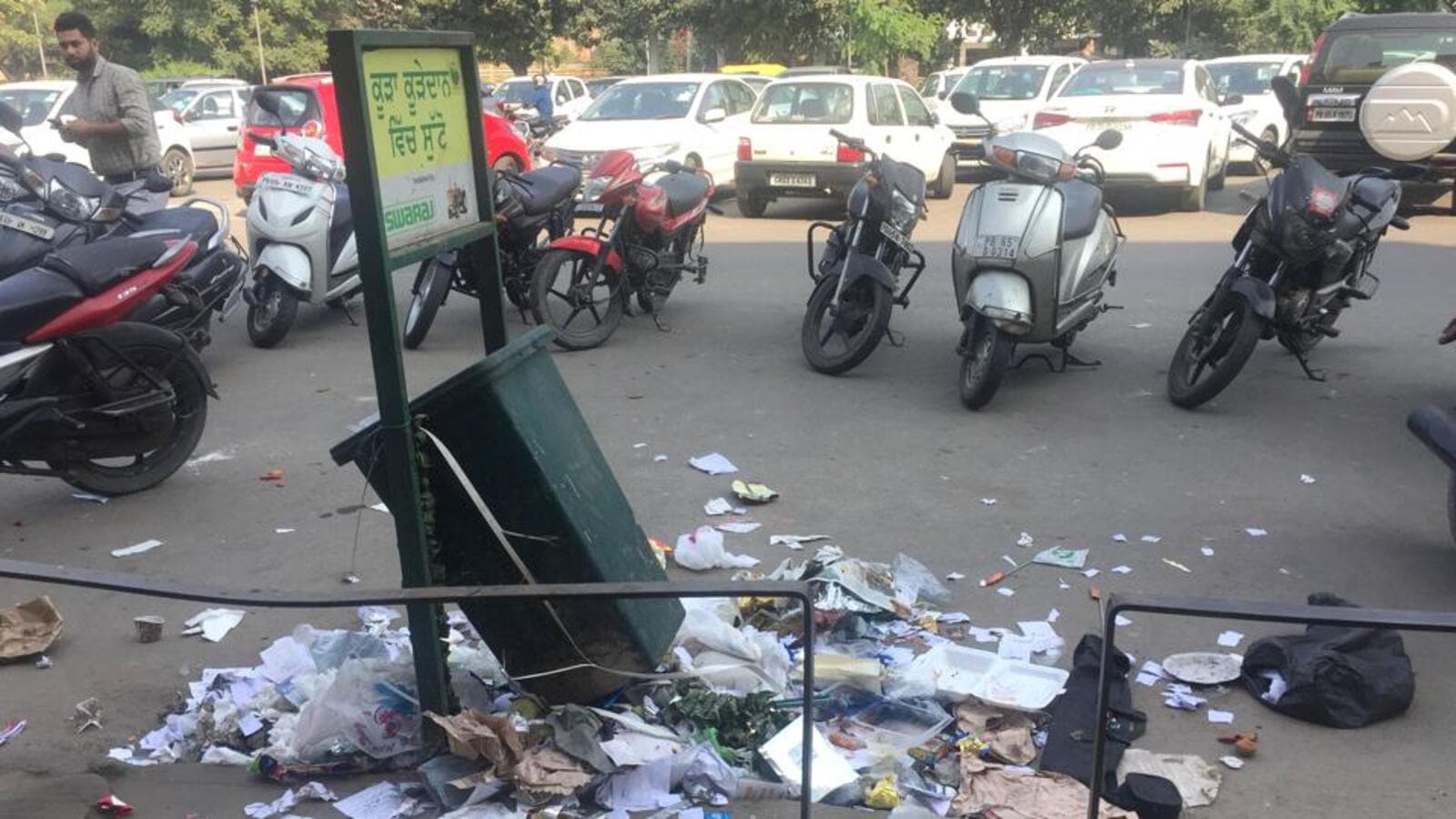The Great Indian Civic Blindness: Democracy Without Awareness

It’s a regular Friday morning in any Indian metropolis. The traffic light flashes fierce red, a hue commonly recognized as “stop.” However, as if to play a game of unspoken disobedience of simple order, motorcyclists thread between the congested automobiles, autorickshaws push forward with skillful ease, and pedestrians weave between cars with the quick feet of classical dance. The red light looks to be simply a suggestion, a vestige of a rulebook that no one found convenient to read.
This scene is repeated millions of times a day in India, highlighting a strange irony of Indian society: a civilization that gave birth to deep philosophical ideas, important mathematical axioms like zero, and amazing ancient city layouts, like Mohenjo-daro’s sewage system, is now seemingly unable to line up in a queue or deposit something in a public waste bin. The gap is so large that one would assume civic consciousness was left out of our otherwise rich culture, like an important page from an otherwise complete textbook.

Let’s take the Indian driver. A population that needs to be studied in detail when analyzing how people behave. When an Indian gets into a car, something strange happens. The considerate person who might politely say “One more roti, please?” at home becomes a awkward driver for whom remaining in a lane is as strange as traveling to another planet.
Turn signals are never used because, apparently, other drivers are expected to somehow magically know what they are going to do. Car horns are not to warn but are blown like musical instruments all the time as part of a symphony of irritation. And if, by chance, you actually follow traffic rules, you will get angry stares, colorful expletives, and sometimes, creative hand gestures pointing to unpleasant places.
The odd thing is how assuredly these bad things are done. There are no sly looks or signs of guilt; just the calm certainty of someone who thinks the world exists just to suit them. Being impolite seems to be a right rather than a mistake, a strange privilege that declares, “My time is essential; yours is not.”
This civic myopia extends well beyond our streets. Take a look at our public spaces, which are treated as if they are someone else’s land. Trash is thrown with astounding proficiency everywhere but not in the correct bins. The same hands that carefully clean homes twice daily have no worry about throwing wrappers out of car windows or scattering plastic bottles wherever they go. The disconnect of thinking is appalling. It’s like having someone who showers three times a day but does not think anything is wrong with urinating on public walls.

The 2014 Swachh Bharat (Clean India) mission started with much bluster, with politicians standing with brooms for planned photo shoots. But even after billions have been invested in infrastructure and awareness, Indians continue to believe that it is not their duty to clean public spaces. The same person who will be furious to see a bit of dust in his or her house will happily spit paan on priceless monuments. We are not short of knowledge regarding cleanliness; just considering it outside our own homes. It seems that our civic duty stops at our doorstep.
Recall the tragic incident in 2017 when a man in Delhi was murdered while attempting to prevent someone from urinating in public. Or the 2019 incident when a man in Mumbai was attacked for requesting a fellow commuter not to litter on the train. These are not isolated incidents of violence; they reflect a larger issue of an angry rejection of community norms and a fierce defense of the right to be rude.
Public infrastructure is the victim of this civic neglect. New metro stations, inaugurated with political orations on contemporary life and development, soon bear the marks of neglect of vandalized panels, broken seats, and spit areas in the corners. It’s as if we are in some strange competition to see how quickly we can destroy what has been built. In this strange spectacle of civic destruction, India would surely win gold.

What is surprising is how this act transcends education, class, and wealth. A wealthy businessman in a luxury car is as likely to spit garbage out of his car window as an auto-rickshaw driver. A university professor is as likely to cut in front as a street vendor. It is not really a matter of a lack of education; it is something else; can be termed as a failure to grasp the principle of shared responsibility.
Some psychologists are of the opinion that this is because we have a history of putting family and community first, ahead of abstract notions of citizenship. In a society where we value relationships with the people we know, caring for unknown “others” is far away and unnecessary. Others bring up the colonial era, when public facilities were viewed as the property of foreign powers rather than the people who lived there. Despite their usefulness, these explanations don’t appear sufficient when considering the scope and persistent nature of the issue seven decades after independence.
Perhaps it has to do with responsibility, or the lack of it. In a system where rule-breaking is seldom punished, why go through the trouble of obeying? When you can bribe your way out of a traffic ticket, cut a queue with impunity, or litter without being penalized, civic responsibility is a sucker’s game. The rational choice, in such a system, is to maximize individual convenience over collective good.
This is very evident in how we reacted to the COVID-19 pandemic. While many people observed the mask mandate and social distancing, many others saw these essential interventions as just annoying choices. Do you recall the videos of people with a mask hanging from the chin or packed markets during festive seasons even as cases were rising? When we had to work together the most, our problems as a people became very clear.
The saddest thing about this civic blindness is its harm to those who are least resilient against it. When wealthy people defy civic rules, they can pull back into their gated communities and private enclaves. But for millions who live in close-packed city neighborhoods, civic neglect creates health hazards, safety concerns, and a lower quality of life. The child playing beside a yawning sewer because public parks are taken over, the elderly man hobbled on deteriorating sidewalks clogged by parked cars, the day laborer whose travel time is extended by traffic chaos—these are the actual victims of our civic negligence.
All is not doom and gloom. There are heartening signs of people actually caring in the country—beach clean-up community initiatives, local groups organizing waste sorting, and youth groups maintaining public art. But these are islands in an ocean of indifference, and their impact is insignificant due to the much greater issue of people not caring around them.
How ironic that we act differently when abroad? The same Indian who has no hesitation in jumping over the red light at home acts like a law-abiding citizen in Singapore and follows all the rules. Such a change is so huge that it is almost laughable—like civic sense is a holiday costume we wear and then keep away when we’re back.
Others have contended that tighter regulations would do the trick. Singapore’s large fines for littering and Japan’s community programs are cited as exemplary models. But regulation enforcement alone will not instil a sense of community; it can only repress temporarily the reality of its absence. True civic awareness needs to be integrated into how we see ourselves as members of others and the environments we inhabit.
Perhaps we must shift our definition of respect in our culture. Respect is now accorded primarily to the strong, the old, the rich, or the influential. What we are short on is respect for our equals, strangers, and the public spaces we share. Until we expand our definition of respect to encompass individuals we don’t know and spaces we don’t own, our sense of community will never expand.
The price of this lack of city awareness is not just aesthetics or being inconvenient; it results in money lost, health issues, and a reduced quality of life. An estimate by a 2019 study put traffic congestion in major Indian cities at billions of rupees every year in lost working hours and wasted fuel. The health impacts of poor sanitation and pollution add on to the costs. Our issues in city management are not merely social problems; they also impede our economic growth.
In Indian neighborhoods, there is a poignant scene that is all too common: a man is carefully cleaning his front yard, sweeping dirt directly onto public property or his neighbor’s yard. This picture shows our civic problem well. People desire cleanliness and order, but only in small personal areas. The public space is a convenient space where personal responsibility disappears.
Since we desire to be a developed country and a great world power, our lack of consciousness is a major issue. Economic development and emerging technology are not so important if our public areas are dirty, our common resources are poorly managed, and we are neglecting our duties to one another. A genuinely developed nation is not necessarily defined by its GDP or its technological achievements but by how its people treat one another and look after their common environment.
The path to civic awareness will be difficult and protracted, and it will require transformations in education, enforcement, and cultural values. But it will have to start with acknowledgment. Recognizing that our civic deficiencies are more than small irritations; they are vital limitations on our societal growth. The person who runs everyone over on the highway is more than simply a troublesome driver, but he’s a sign of a deeper illness that impacts all of us.
Until we acknowledge our unawareness, we will be a nation of people going forward one at a time but stopping ourselves as a group, as runners in a three-legged race with one leg planted in indifference. And maybe that’s the most Indian trait of all, as the ability to look to the future while still clinging to old ways. The question is not if we can change but if we will change sufficiently to actually see.




